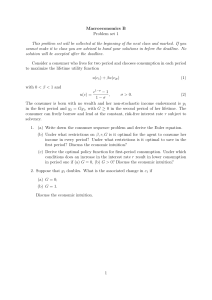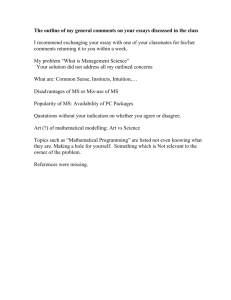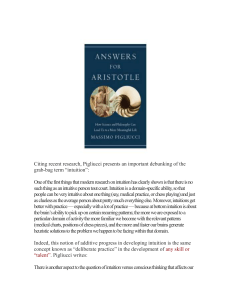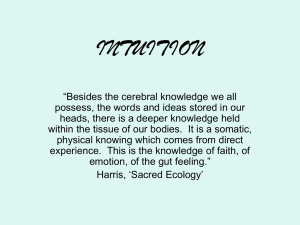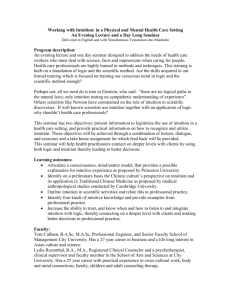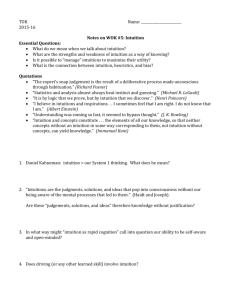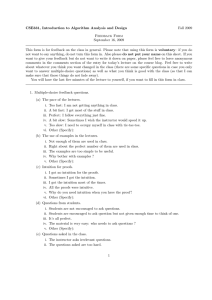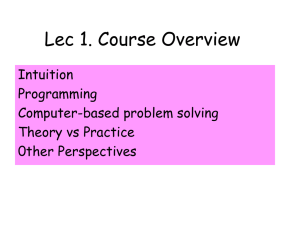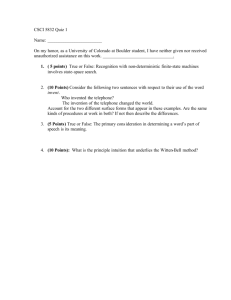Having a hunch – tapping into your senses By Louis Rood Lawyers
advertisement
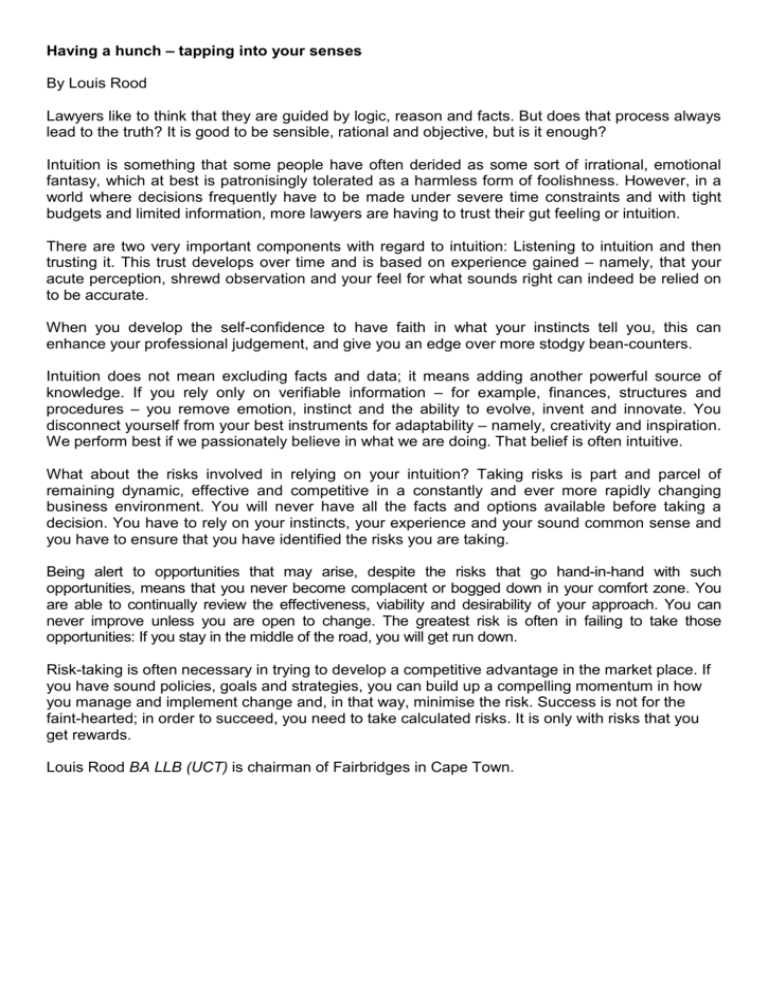
Having a hunch – tapping into your senses By Louis Rood Lawyers like to think that they are guided by logic, reason and facts. But does that process always lead to the truth? It is good to be sensible, rational and objective, but is it enough? Intuition is something that some people have often derided as some sort of irrational, emotional fantasy, which at best is patronisingly tolerated as a harmless form of foolishness. However, in a world where decisions frequently have to be made under severe time constraints and with tight budgets and limited information, more lawyers are having to trust their gut feeling or intuition. There are two very important components with regard to intuition: Listening to intuition and then trusting it. This trust develops over time and is based on experience gained – namely, that your acute perception, shrewd observation and your feel for what sounds right can indeed be relied on to be accurate. When you develop the self-confidence to have faith in what your instincts tell you, this can enhance your professional judgement, and give you an edge over more stodgy bean-counters. Intuition does not mean excluding facts and data; it means adding another powerful source of knowledge. If you rely only on verifiable information – for example, finances, structures and procedures – you remove emotion, instinct and the ability to evolve, invent and innovate. You disconnect yourself from your best instruments for adaptability – namely, creativity and inspiration. We perform best if we passionately believe in what we are doing. That belief is often intuitive. What about the risks involved in relying on your intuition? Taking risks is part and parcel of remaining dynamic, effective and competitive in a constantly and ever more rapidly changing business environment. You will never have all the facts and options available before taking a decision. You have to rely on your instincts, your experience and your sound common sense and you have to ensure that you have identified the risks you are taking. Being alert to opportunities that may arise, despite the risks that go hand-in-hand with such opportunities, means that you never become complacent or bogged down in your comfort zone. You are able to continually review the effectiveness, viability and desirability of your approach. You can never improve unless you are open to change. The greatest risk is often in failing to take those opportunities: If you stay in the middle of the road, you will get run down. Risk-taking is often necessary in trying to develop a competitive advantage in the market place. If you have sound policies, goals and strategies, you can build up a compelling momentum in how you manage and implement change and, in that way, minimise the risk. Success is not for the faint-hearted; in order to succeed, you need to take calculated risks. It is only with risks that you get rewards. Louis Rood BA LLB (UCT) is chairman of Fairbridges in Cape Town.

